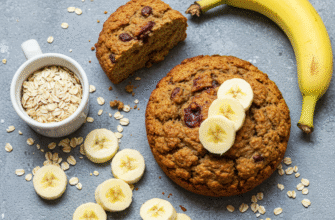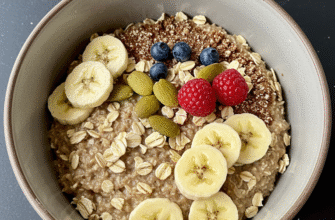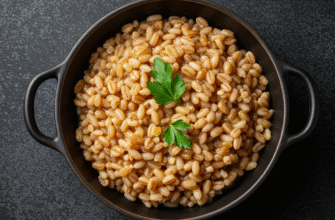Ever notice how some days you feel on top of the world, while others feel like wading through treacle? While countless factors influence our daily mood, from sleep quality to stress levels, one powerful, yet often underestimated, contributor is sitting right on our plates. The connection between what we eat and how we feel emotionally is becoming increasingly clear. It’s not about miracle foods instantly curing blues, but rather understanding how consistent, thoughtful food choices can contribute to a more stable, positive emotional baseline. Think of it as tuning your body’s instrument – the right fuel helps it play a clearer, more harmonious tune.
This isn’t about restrictive dieting or labeling foods as strictly ‘good’ or ‘bad’. Instead, it’s about fostering a healthier relationship with food, recognizing its role beyond simple sustenance. It’s about nourishing ourselves in a way that supports not just physical health, but mental and emotional resilience too. When we consistently provide our bodies with the nutrients they need to function optimally, our brains – the command center of our emotions – often benefit significantly.
The Fascinating Gut-Brain Axis
One of the most exciting areas exploring the food-mood link is the study of the
gut-brain axis. This term refers to the constant, two-way communication highway between our digestive system and our brain. It sounds a bit sci-fi, but it’s a fundamental aspect of our biology. Millions of nerves connect the gut and brain, along with chemical messengers like hormones and neurotransmitters. Ever felt ‘butterflies’ in your stomach when nervous, or lost your appetite when stressed? That’s the gut-brain axis in action.
Interestingly, a large percentage of serotonin, a key neurotransmitter heavily involved in regulating mood, sleep, and appetite, is actually produced in the gut. The health and composition of our gut microbiome – the trillions of bacteria living in our digestive tract – appear to play a crucial role in this process. A diverse and balanced microbiome is associated with better overall health, and emerging insights suggest it could also influence mood regulation. Feeding the beneficial bacteria with the right foods might, indirectly, support a brighter outlook.
Nourishing Your Way to a Better Feeling
So, what kinds of foods tend to support this delicate balance and potentially contribute to a better mood? The emphasis is generally on whole, unprocessed foods packed with essential nutrients.
Complex Carbohydrates: The Steady Energizers
Forget the idea that all carbs are bad. Complex carbohydrates, found in foods like oats, brown rice, quinoa, whole-wheat bread, legumes (beans, lentils), and starchy vegetables (sweet potatoes), are crucial. They break down slowly, providing a steady release of glucose (sugar) into the bloodstream. This prevents the sharp spikes and subsequent crashes in blood sugar often caused by simple sugars (found in candy, sugary drinks, white bread). Stable blood sugar levels mean more consistent energy and less likelihood of experiencing irritability, fatigue, or brain fog – all of which can negatively impact mood.
Lean Protein Power
Protein is made up of amino acids, which are the essential building blocks for many bodily functions, including the creation of neurotransmitters. Tryptophan, for example, is an amino acid precursor to serotonin. Including sources of lean protein in your meals can help ensure your brain has the materials it needs. Good sources include:
- Poultry (chicken, turkey)
- Fish (especially fatty fish)
- Eggs
- Legumes (beans, lentils, chickpeas)
- Tofu and tempeh
- Low-fat dairy or dairy alternatives
- Nuts and seeds
Incorporating protein at each meal can also help with satiety, keeping you feeling full and satisfied, which can further contribute to stable energy and mood.
The Importance of Healthy Fats
Our brains are remarkably fatty – about 60% fat, in fact! Therefore, dietary fats are essential for brain structure and function. Omega-3 fatty acids, in particular, are superstars for brain health. These polyunsaturated fats are integral components of brain cell membranes and play roles in neurotransmitter pathways. While research is ongoing, consistent intake of omega-3s is strongly associated with brain health. Excellent sources include:
- Fatty fish (salmon, mackerel, sardines, herring)
- Flaxseeds (ground or oil)
- Chia seeds
- Walnuts
- Seaweed and algae
Other healthy fats, like monounsaturated fats found in olive oil, avocados, and nuts, also support overall health, contributing indirectly to well-being.
Vitamins and Minerals: The Unsung Heroes
Micronutrients play vital roles in countless bodily processes, including those that influence mood. B vitamins (especially B6, B12, and folate) are critical for energy production and neurotransmitter synthesis. Magnesium is involved in nerve function and relaxation. Zinc plays a role in brain signaling. Deficiencies in these and other micronutrients can sometimes manifest as fatigue or low mood. Eating a varied diet rich in fruits, vegetables, whole grains, nuts, and seeds helps ensure an adequate intake. Leafy greens, bell peppers, berries, bananas, avocados, nuts, seeds, and legumes are all fantastic sources of various mood-supporting vitamins and minerals.
Verified Insight: Focus on Whole Foods. A balanced diet rich in fruits, vegetables, whole grains, lean proteins, and healthy fats provides the wide array of nutrients your body and brain need to function optimally. Consistency is more important than perfection. Aim for variety and colour on your plate most days to support overall well-being, which includes a more stable mood.
Foods That Might Dampen Your Spirits
Just as some foods can support a positive outlook, others can potentially have the opposite effect, especially when consumed regularly or in large amounts.
The Sugar Rollercoaster
We touched on this earlier, but it bears repeating. Foods and drinks high in refined sugars cause a rapid surge in blood sugar, often followed by a steep crash. This crash can leave you feeling tired, irritable, and mentally foggy. Regularly riding this rollercoaster can destabilize mood and energy levels significantly. Be mindful of sugary sodas, candies, pastries, sugary breakfast cereals, and even hidden sugars in processed foods and sauces.
Highly Processed Pitfalls
Ultra-processed foods (think packaged snacks, ready meals, fast food) often lack the essential nutrients found in whole foods. They can be high in unhealthy fats, refined sugars, sodium, and artificial additives. Some research suggests that diets high in processed foods might be linked to less favourable mood outcomes, possibly due to their low nutrient density or potential impact on inflammation and gut health. While convenient, try to limit reliance on these and prioritize fresh, minimally processed options whenever possible.
Caffeine and Alcohol Considerations
While a morning coffee can feel like a lifesaver, excessive caffeine can lead to anxiety, jitters, and disrupted sleep – all factors that negatively impact mood. Similarly, while alcohol might offer temporary relaxation, it’s a depressant. It can interfere with sleep quality, dehydrate you, and lead to low mood or anxiety the next day. Moderation is key for both.
Practical Steps Towards Mood-Friendly Eating
Making changes doesn’t have to be overwhelming. Small, consistent steps can make a big difference over time.
- Prioritize Whole Foods: Base your meals around vegetables, fruits, whole grains, lean proteins, and healthy fats. Cook at home more often to control ingredients.
- Stay Hydrated: Dehydration can cause fatigue and difficulty concentrating, affecting mood. Aim for plenty of water throughout the day.
- Eat Regularly: Skipping meals can lead to low blood sugar and irritability. Aim for balanced meals and snacks spaced throughout the day to maintain stable energy.
- Listen to Your Body: Pay attention to how different foods make you feel. You might notice patterns between your diet and your mood or energy levels.
- Introduce Changes Gradually: Don’t try to overhaul your entire diet overnight. Pick one or two small changes to focus on each week, like adding more vegetables to dinner or swapping sugary drinks for water.
- Be Patient and Kind to Yourself: Building healthier habits takes time. Don’t get discouraged by occasional slip-ups. Focus on progress, not perfection.
A Final Thought on Food and Feelings
Nourishing your body with wholesome foods is an act of self-care that extends beyond physical health. While diet isn’t a magic bullet for emotional well-being, it’s undoubtedly a significant piece of the puzzle. By making mindful choices about what you eat, focusing on nutrient-dense whole foods, and limiting those that can disrupt your energy and mood, you provide your body and brain with the foundational support they need to function at their best. It’s about creating a sustainable eating pattern that helps you feel more energized, resilient, and emotionally balanced, day in and day out. Remember, consistency and a focus on overall dietary patterns, rather than individual ‘superfoods’ or ‘bad’ foods, is what truly makes a difference in the long run.









